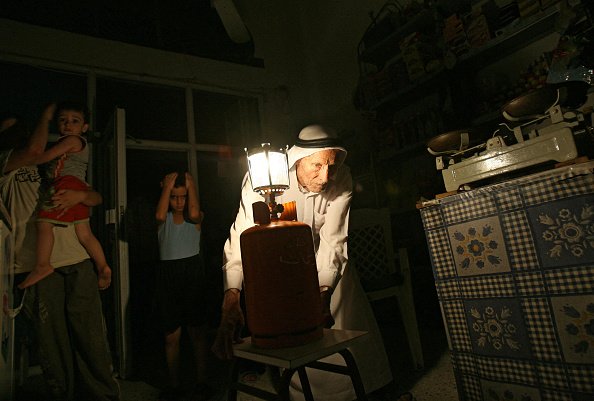A recent study reveals that the enduring 18-year electricity crisis in the besieged Gaza Strip is taking a toll on the mental health of its residents.

A recent study reveals that the enduring 18-year electricity crisis in the besieged Gaza Strip is taking a toll on the mental health of its residents.
The research highlights elevated levels of anxiety and depression among individuals grappling with chronic power shortages, underlining the positive impact of access to reliable energy sources on well-being.
The study encompassed approximately 350 families residing in the coastal enclave, with 81 of them enduring intermittent electricity supply. Shockingly, the findings indicated that about 93 percent of participants reported experiencing moderate to severe anxiety, in contrast to a mere six percent in the broader West Bank population.
Moreover, 44 percent of the surveyed families disclosed suffering from moderate to severe depression, a stark contrast to the 5.6 percent recorded in the general population.
Co-author Raya al-Dadah, from the University of Birmingham, emphasized the gravity of the situation, stating, “We found that electricity issues, especially when combined with other stress factors associated with living in Gaza, lead to serious mental health concerns.”
Al-Dadah called for focused efforts towards establishing sustainable, dependable, and cost-effective energy supplies, which she believes are imperative for both short- and long-term health and community development.
Mazen Abu Qamar, a Gaza-based psychologist and co-author of the study, echoed this sentiment, highlighting the far-reaching implications of intermittent electricity access on social and community networks. He stressed the importance of providing Gazans with access to reliable, environmentally-friendly, and affordable energy sources, citing their role in supporting employment, fostering economic growth, and alleviating poverty.
The electricity crisis in Gaza dates back to 2006, when the sole power station capable of generating electricity during the summer was targeted in an Israeli bombing following the capture of Israeli soldier Gilad Shalit. Subsequent efforts to address the crisis saw little progress.
Currently, the Gaza Strip, home to over 2.3 million people, requires approximately 500 megawatts daily. While it receives 120 megawatts from Israel, its sole power station generates a mere 60 megawatts, leading to residents experiencing as little as eight hours of electricity per day. During summer and winter, this duration can plummet to 12 hours of daily blackouts.
In response to the inadequate public supply, many Gazans turn to private generators operated by investment firms, situated throughout different areas of the region. However, the exorbitant cost of this alternative is nearly eight times higher than the regular price.
This prolonged energy crisis has left the Gaza Strip on the brink of catastrophe, with severe consequences for healthcare, water access, and sanitation. The dire situation calls for urgent attention and intervention to alleviate the mental health strain on Gaza’s populace.